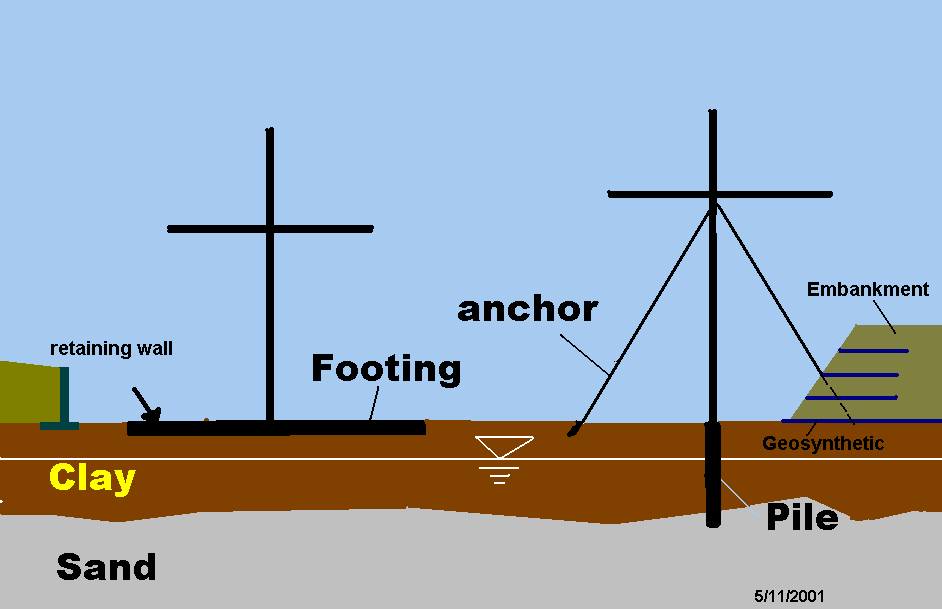
|
Soil is one of the oldest construction materials that human have been working with. Civil Engineering was interpreted as soil and wood engineering in the Chinese civilization. During childhood, we played with the dirt, and now we are ready to understand the engineering behavior of this material before we learn to use it. |
| In creating a solid framework of geotechnical engineering
education at Columbia University, a series of geotechnical courses have
been formulated:
Soil Mechanics: The basic theory will show you how a three-phase medium like soil, which is composed of solid, water and air, can be treated theoretically and empirically. I always try to compare it with other civil engineering courses so that you will be aware of their difference/similarity. Geotechnical Fundamentals: The basic theories are used to design earth structures such as footings and piles (foundations), retaining structures and slopes. I always emphasize on the fundamentals and traditional methodology of design and analysis, while also helping to equip you with the powerful numerical tools. Geosynthetics and Waste Containment Systems: Geotechnical engineering also fulfils the environmental need by creating landfill using geosynthetics. You will learn how difficult and costly it is to construct facilities in holding the trash since it may be harmful. Advanced Soil Mechanics, Experimental Soil Mechanics: An experimental skill is always needed in helping us to characterize and to calibrate the soil behavior. At the advanced level, soils are modeled using elastoplasticity and analyzed using the numerical procedure employing finite element method. The courses will illustrate the importance of comparing field performance of earth structures with the theoretical results. Geotechnical Earthquake Engineering: The methodology of earthquake-resistant design of soil structures is given. This course will bring you comparatively more equations with new insight into the subject. If you are not living in an earthquake-prone region, you can at least feel the vibration from the subject. You will not liquefy before the end of semester.
|
| My goal of teaching above courses is to bring you many issues that are not covered in the textbooks. Many books are available as a guide to your knowledge about soils, but the interpretation and presentation of the material depend on the instructor. We teach the students to understand the basic theories, applying them to the real world, and developing them further in research and practice. |

What is so special about Geotech?
Some writings about Geotech
A survey
on the requirement of second geotech course in the undergraduate program